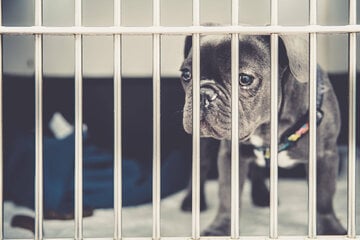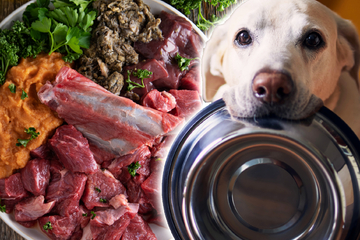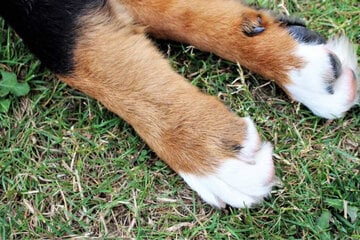Dog neutering: Benefits, procedure, aftercare, and everything you should know
Do dogs need to be neutered, and what is the procedure like when you take your dog through it? It's an important step, and we're here with all that you need to know going in.
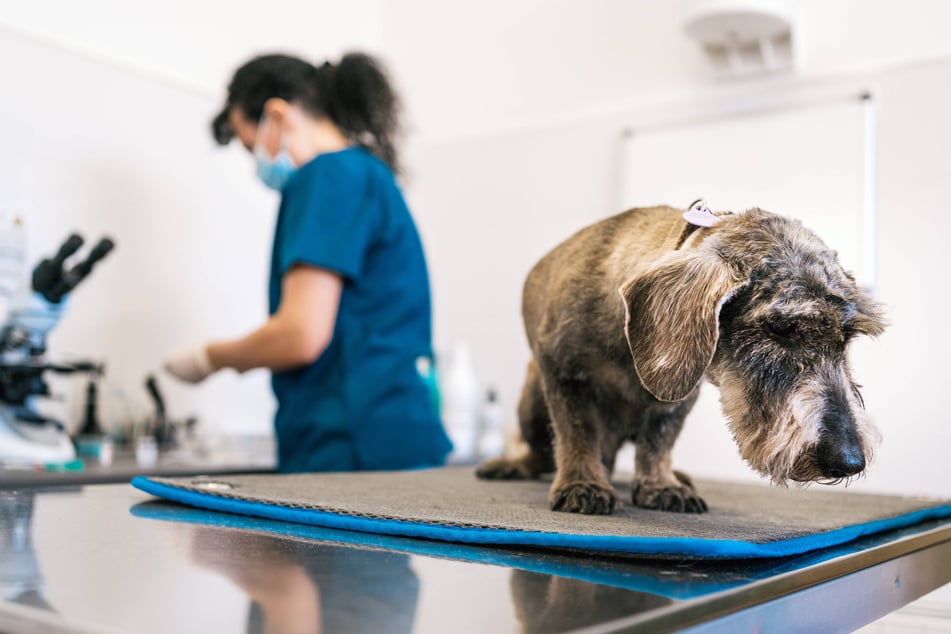
Dogs that haven't been neutered will often get aggressive and disobedient, marking every single spot, and running all over the place. When a dog goes into heat, these behaviors increase even more, making it even more obvious why you should get your pet neutered. Of course, there's also the issue of pregnancy!
In this dog guide, TAG24 will take a look at why you should or should not get your dog neutered. What are the benefits, how does the procedure work, and what is the aftercare for a recently neutered dog? Here's everything you should know.
What is neutering a dog?
Neutering is an operation in which a male or female dog is castrated so they are no longer capable of reproducing. In a male dog, this is when a veterinarian removes the ability for its penis to inseminate a female during sexual intercourse. This is generally done by removing both testicles and thereby sterilizing the male's reproductive organs.
On the flip side, a female dog has its ovaries, uterus, and fallopian tubes removed so that it is unable to bear puppies. In the end, neutering is the process of getting rid of any possibility for a female dog's eggs to be fertilized and a litter of puppies to be produced.
Should dogs be neutered? Pros and cons of neutering a dog
It is important for a dog to be neutered unless the owner wants to raise puppies, or the dog is meant to be bred. What's important to understand, however, is that a dog should not be neutered until it has completed its physical and hormonal development.
Sex hormones are vital for the development of a dog's brain, and as a consequence, its intelligence, stress processing, and social skills are all affected. Early neutering can lead to serious health and social consequences, including bone problems and behavioral issues.
It is crucial that your dog's veterinarian is involved from start to finish in the conversation around neutering. Your vet needs to be the one to make the call about neutering and should be completely up-to-date on the state of your dog's health before the operation. They should also take on an advisory role throughout the aftercare process.
Benefits of neutering a dog
While there are many risks associated with neutering a dog, the benefits are significant. From the removal of any possibility that your dog will have puppies, to better behavior and reduced health issues, it's important to understand how your dog will change after neutering.
Here are some of the key benefits of dog neutering:
- Induced infertility will remove the risk of unwanted offspring.
- Neutering prevents diseases that afflict the testicles, uterine or ovaries of a dog, as these organs are removed.
- Professional dog training will often require your dog to have been neutered.
- Hormonal behaviors will cease, resulting in less mounting and a reduction in other negative behaviors.
- Female dogs will no longer go into heat.
- Dogs with diabetes can now take insulin, as it will no longer disturb their sex hormones.
- Dogs will show improved overall behavior.
Important: Neutering will only reduce the risk or eliminate the possibilities of a few specific diseases and illnesses. It is not a "get out of jail free card" for your pet's health, and there are plenty of potential health issues that can still arise.
Cons of neutering a dog
Dogs will gain many advantages from being neutered, and it is probably a good idea for most domestic doggos. However, that does not mean that it comes without risks. We want to reiterate that your veterinarian should make sure your dog is healthy before going forward with a neutering procedure.
Here are a few of the possible disadvantages of dog neutering:
- There is always a risk with anesthesia and surgery.
- It will not be possible for the dog to breed.
- Neutering comes with a risk of weight gain and obesity.
- Neutering can result in an increased risk of hypothyroidism.
- There is a possibility of incontinence, especially in the immediate aftermath of the neutering procedure.
- Your dog's development will stop, presenting significant risks in young under-developed pooches.
- Neutering could come with coat changes.
- Your dog may have an increased risk of spleen tumors, bone cancer, and prostate cancer.
- Your pet may have an increased susceptibility to joint diseases and orthopedic problems.
- Female dogs will increasingly reject the advances of other doggos, potentially leading to some low-level aggression, especially early on.
It is important to note: Neither the dog neutering pros nor the cons list is by any means complete. These lists are meant to give you a general idea of the benefits and disadvantages of undergoing this procedure. For detailed information, talk to a professional.
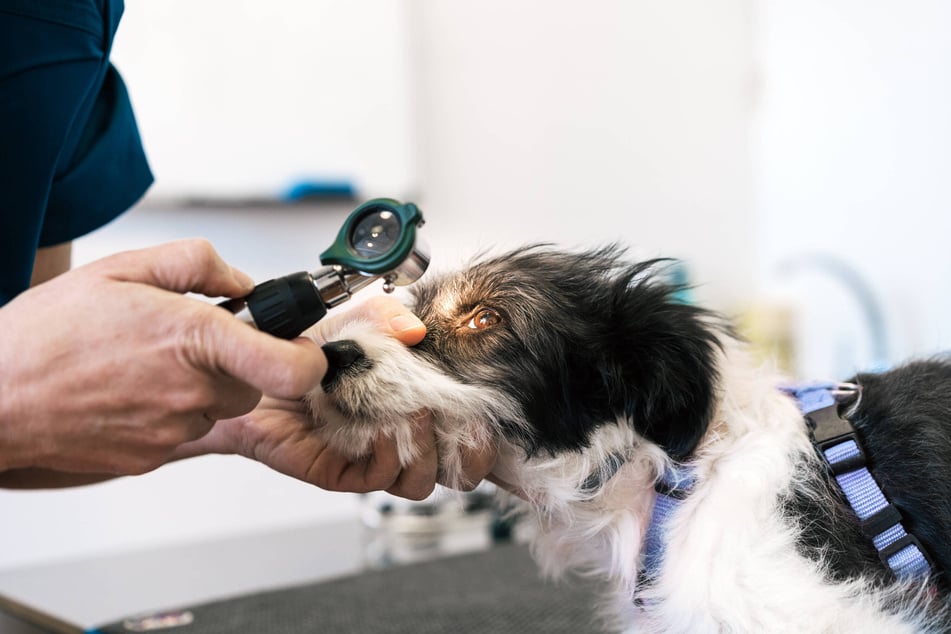
Dog neutering procedure
Neutering is very different between male and female dogs due to the differences in their anatomy. Arguably, it is more important to neuter a female dog because it is able to bear puppies and, as a result, you may find yourself with a litter of little doggos if you're not careful.
To help reduce your fear or stress, here is a simple explanation of what happens in both male and female dog neutering.
Dog neutering procedure male
During the operation, the dog's scrotum is cut open, the testicles are removed, and the spermatic cords are tied off. This leaves behind a small scar and leads to lifelong and irreversible infertility. Male dogs go through a far simpler neutering procedure than females. As a result, it is much easier, less complicated, and not as expensive.
Dog neutering procedure female
When a female doggo is neutered, it is put under general anesthesia while the veterinary surgeon removes the ovaries and part of the uterus. It is not technically necessary to remove the uterus, but it is done as a way to prevent future diseases. A female dog's neutering procedure is far more complicated, risky, and expensive than a male's.
Cost of neutering a dog
The process of dog neutering can be rather expensive and complicated, and the cost also changes depending on the sex, weight, and size of the canine companion at hand. You also need to consider the cost of follow-up examinations that will be necessary once the procedure is finished.
Here are the estimated costs of dog neutering:
- Male dogs: Between $150 and $500 USD
- Female dogs: Between $250 and $700 USD
These prices are based on averages, and you may be able to find veterinarians who will do the procedure for less or more. What we will say, though, is that it is always best to get it done well, even if that makes it more expensive.
On top of that, these prices do not include follow-up costs, as well as the cost of potentially keeping your dog in the hospital if things get complicated. Make sure you have plenty of capital to expend if necessary.
Aftercare of neutering a dog

After your dog has been neutered, it will need to be looked after closely and attentively. Your pet needs to be made comfortable, watched like a hawk, and kept inside. It generally takes about a week for your dog to be more or less recovered, so it's time to settle in for the long haul.
Here are the most important aspects of dog neutering aftercare:
- Your dog must be provided with a comfortable and safe place to rest and sleep indoors.
- The wound should be inspected at least twice a day to make sure that there is no infection and that it hasn't opened up.
- Sadly, your dog should be kept from any physical activity or training for at least two weeks.
- The cone or post-operation jumpsuit must be kept on the whole time to prevent your dog from licking or scratching the area.
- If you notice any issues whatsoever, your veterinarian must be contacted immediately.
- You need to organize a post-operation vet visit to have your dog fully checked out and given the green light.
Aftercare is critical: Looking after your dog well in the days and weeks that follow is extremely important to keep its trust, make it feel safe and happy again, and prevent any health complications.
How soon can I walk my dog after neutering?
Dogs should not be walked for 48–72 hours after neutering to allow enough time for the wound to begin to heal. During this period, it is best to allow your dog time to rest and relax. Feed it properly, and give it plenty of pats and spots to sleep. It is generally a good idea to wait until after your dog has had its post-operation checkup before taking it on long walks again.
How do I comfort my dog after neutering?
The most important thing for a dog that has just been neutered is to provide it with a restful and quiet place where it can relax. Other options include offering plenty of vet-sanctioned treats, toys, and friendly items like blankets to keep your pet comforted and happy.
Strange behavior after neutering dog
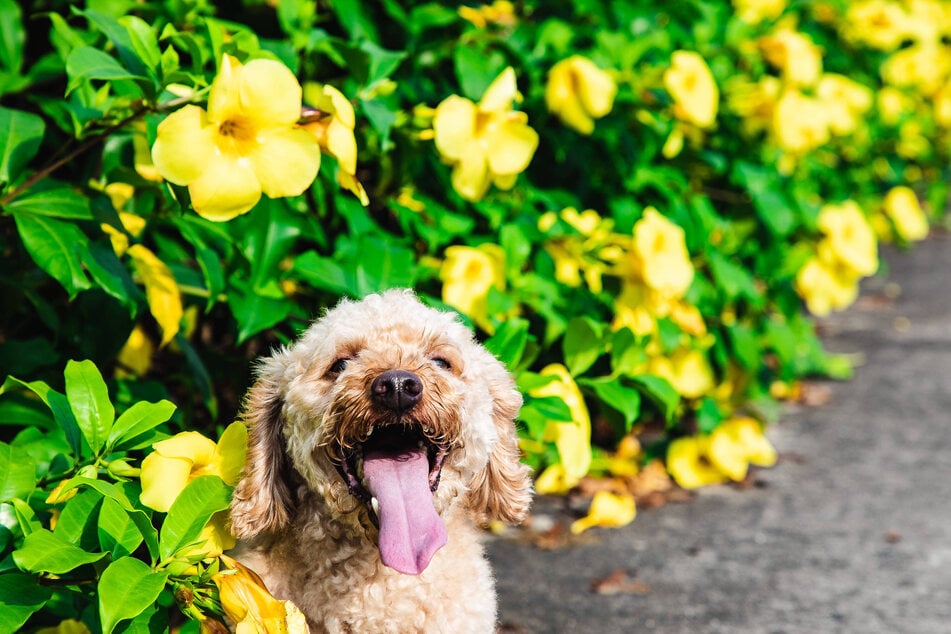
Neutering will greatly improve a dog's behavior in many different areas, but that won't apply across the board. Sure, your puppy will stop humping everything that moves, but it's also about to experience some pretty serious hormonal imbalances.
Here are a few of the behavioral changes you can expect:
Changes in aggression and insecurity: Due to reduced amounts of cortisol in their bodies, neutered dogs are likely to experience less fear, insecurity, panic, and aggression. This goes for a number of other hormones as well.
Dominance: Dogs are still pack animals, and hierarchies will not be resolved through neutering. The dominant doggo will still remain as such, even if they are neutered and have reduced aggression due to changes in their hormonal cycles.
Sex drive: Your beloved doggo will not have the sex drive it once had, but neutering will not entirely remove all of its natural urges. The benefit is that these urges will not result in the creation of puppies.
Hormonal imbalances: Due to the sudden removal of a variety of hormone-producing organs, dogs will certainly go through a withdrawal period after neutering. During this time, they may exhibit some odd behaviors.
Neutering will not remove the possibility of all negative behavior, as these factors are not specifically related to sex hormones. As a result, neutering your dog may not solve all of your problems.
Will dog neutering stop marking and calm it down?
You will find that your dog will mark significantly less after it has been neutered, but won't stop entirely. Overall, you'll notice a stiff change in its behavior. Dogs get calmer, more relaxed, less aggressive and emotional, and far easier to get along with after neutering.
It is vitally important that you get your dog neutered. It removes the risk of pregnancy, improves their behavior, and makes their life better, removing the difficulties associated with an un-neutered existence.
Cover photo: IMAGO / Addictive Stock

